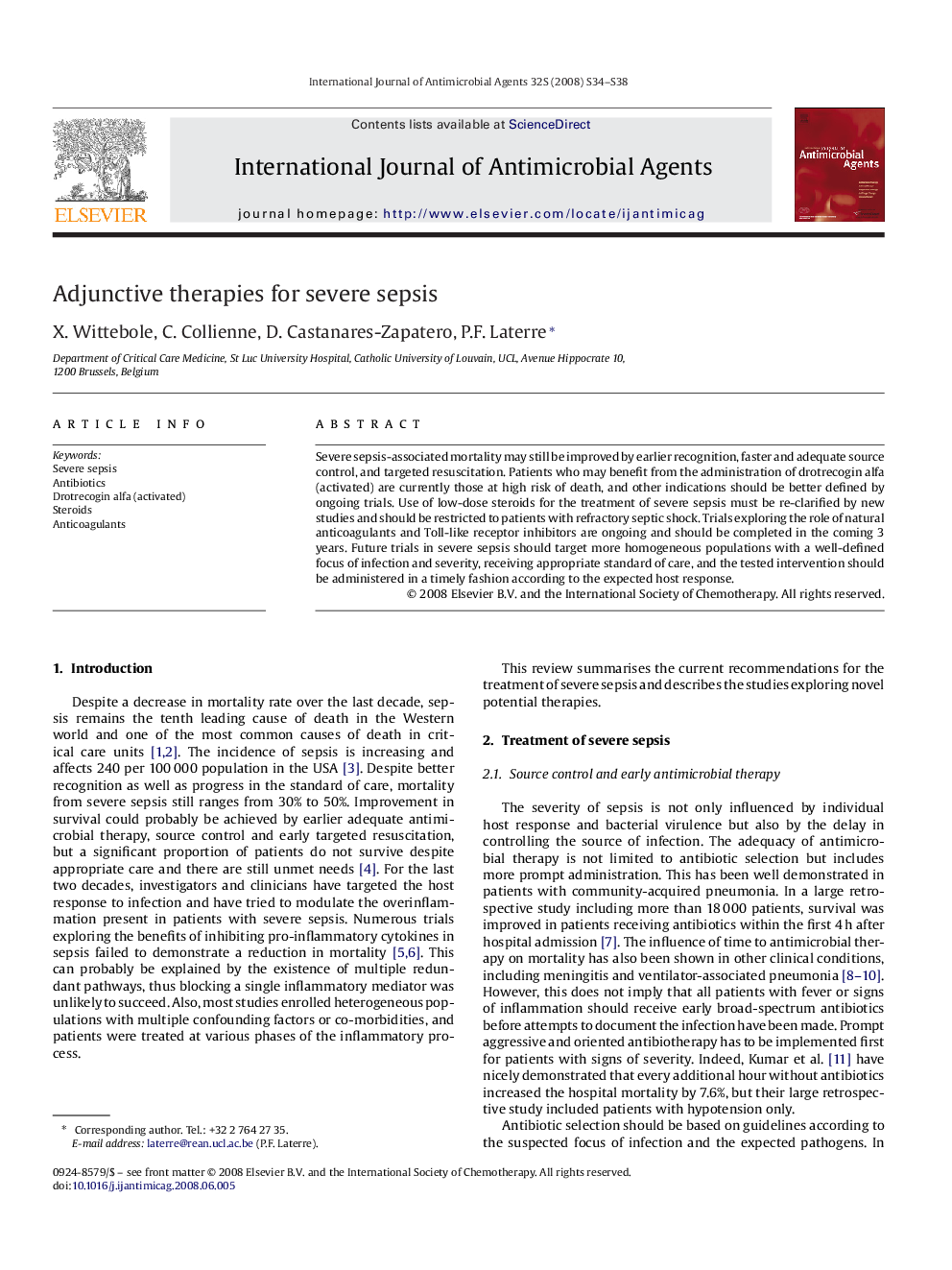| Article ID | Journal | Published Year | Pages | File Type |
|---|---|---|---|---|
| 3360606 | International Journal of Antimicrobial Agents | 2008 | 5 Pages |
Severe sepsis-associated mortality may still be improved by earlier recognition, faster and adequate source control, and targeted resuscitation. Patients who may benefit from the administration of drotrecogin alfa (activated) are currently those at high risk of death, and other indications should be better defined by ongoing trials. Use of low-dose steroids for the treatment of severe sepsis must be re-clarified by new studies and should be restricted to patients with refractory septic shock. Trials exploring the role of natural anticoagulants and Toll-like receptor inhibitors are ongoing and should be completed in the coming 3 years. Future trials in severe sepsis should target more homogeneous populations with a well-defined focus of infection and severity, receiving appropriate standard of care, and the tested intervention should be administered in a timely fashion according to the expected host response.
